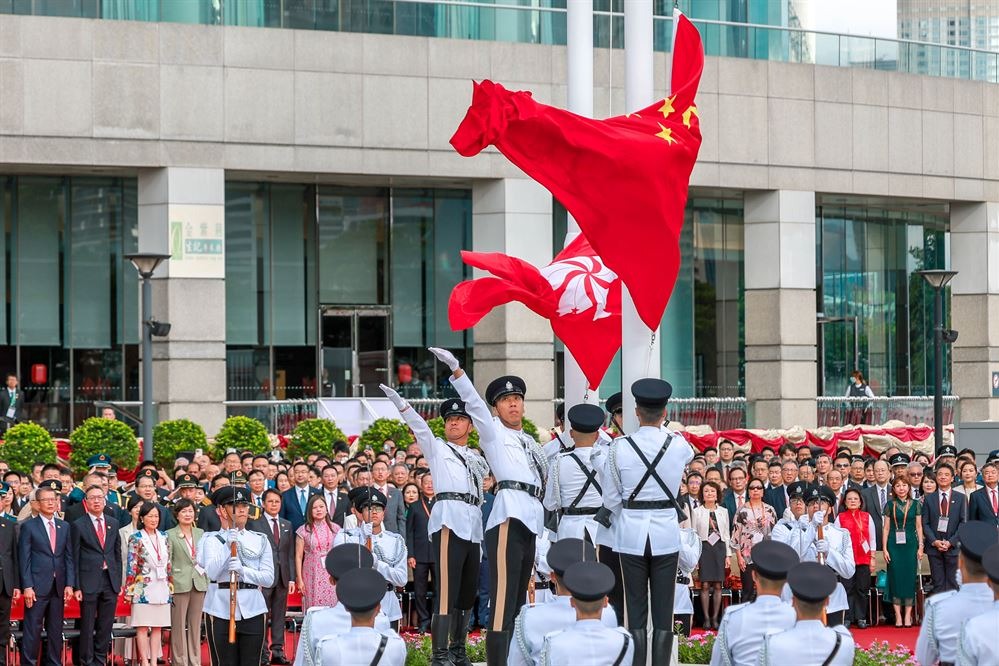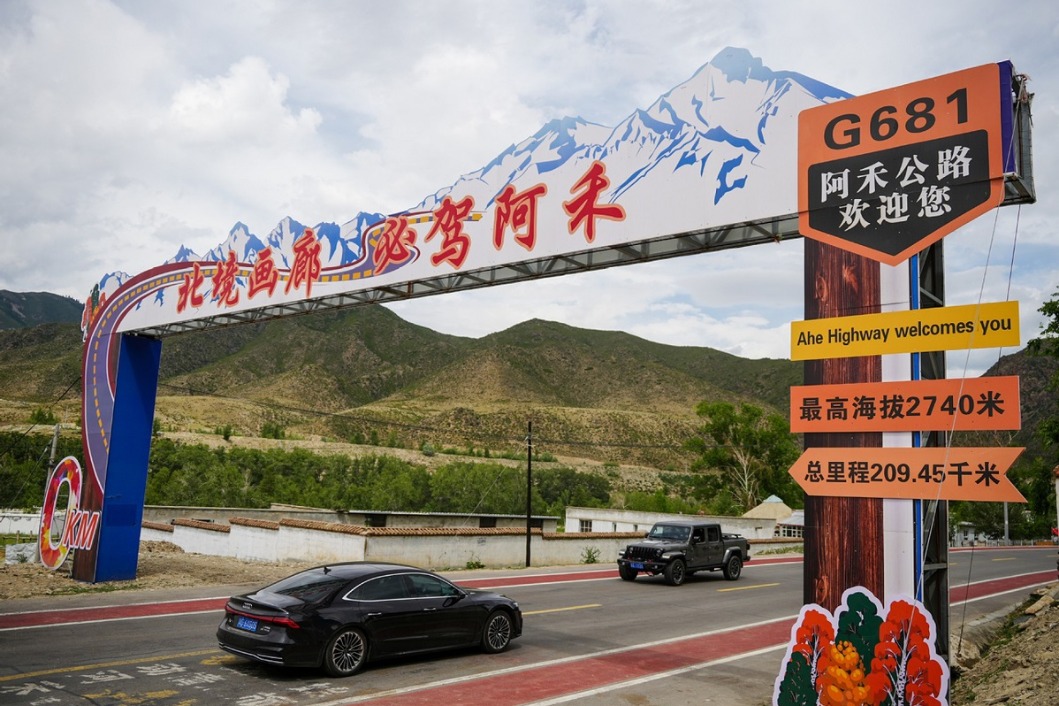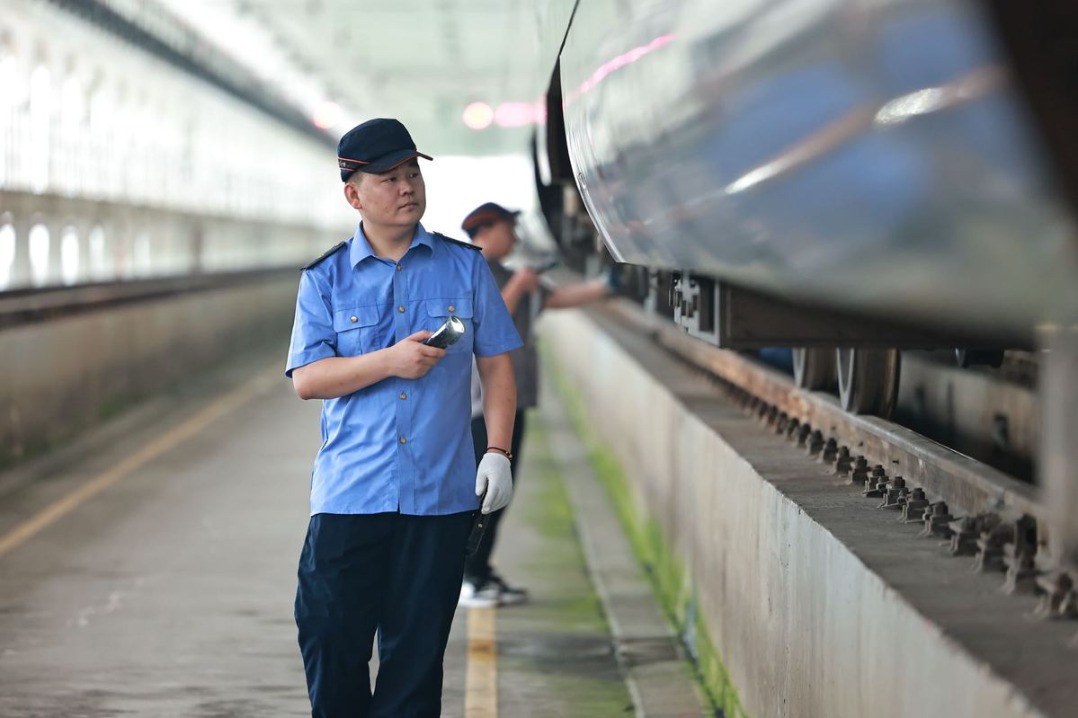China's Gen Z farmers embrace smart agriculture

TAIYUAN -- From AI-powered data platforms to drones flying across the skies, Generation Z farmers in China are embracing a modern approach to agriculture and redefining what it means to be a farmer.
Wang Huan, 21 years old, was born and raised in a farming family in Yicheng county, North China's Shanxi province. He can still recall the hardships associated with traditional farming during the pre-drone farming era of his childhood.
"Back then, my family had to carry tanks on our backs and spray pesticides and fertilizers under the blazing summer sun. It felt like the work would never end," Wang said.
For Wang, now a skilled drone pilot, the advent of drone technology has brought about a revolutionary change. He said that a drone can spread two tonnes of fertilizer in just over a day, while the same amount of work used to take three people four to five days to complete.
In addition to drones, the young farmer has also mastered other tools of modern agriculture such as harvesters, seeders and balers.
Similar stories are unfolding across China's countryside. Ding Zehui, who hails from Shanxi's Wanrong county, returned to his home village after graduating from university last year to become a farmer, albeit with a high-tech twist.
The 22-year-old has joined a local cooperative providing agricultural machinery services. He has also convinced his family to purchase an unmanned seeder, which, equipped with the BeiDou navigation system, can operate around the clock, greatly enhancing sowing accuracy and efficiency.
"Agricultural machinery has become more and more advanced, with air-conditioned cabins and more user-friendly controls. They have made the working environment much better," Ding said.
As China's rural revitalization and agricultural modernization gain momentum, a new generation of tech-savvy young farmers, like Wang and Ding, is embracing AI, big data, and advanced technologies, along with intelligent machinery, to reshape traditional farming practices that were once reliant on hand tools and arduous manual labor.
Official data show that the comprehensive mechanization rate for crop cultivation, planting and harvesting in China has surpassed 75 percent. Meanwhile, as of 2024, more than 2.2 million agricultural machines across the country had been equipped with the BeiDou navigation system, which helps them achieve internationally advanced levels of efficiency and precision.
Earlier this year, a plan by the Communist Party of China Central Committee and the State Council outlined the goal of achieving notable progress in building up China's strength in agriculture by 2027.
The rise of smart agriculture is also giving the farming profession a cool new mystique that is attracting young Chinese people to the field. Unlike older generations who often saw farming as humble, physically demanding work, today's Gen Z farmers bring more sense of pride and purpose to the job.
"When you see a sea of wheat ready for harvest after a day of hard work, no words can capture the sense of accomplishment," Ding said.
On Chinese social media, hashtags like "Gen Z tractor drivers" and "Gen Z transforming the farm" regularly trend, and creative videos, with themes like "a diary of farming with drones" and "a vlog of raising pigs with AI," have gone viral. Last year, a video showing a young Chinese farmer named Gao Yinghao driving a harvester to his own wedding garnered waves of admiration online.
Wang Shuming, father of Wang Huan and head of a local agricultural cooperative, said that three of his son's classmates have joined the cooperative this year, inspired by his son's example, and have quickly learned to operate various types of farm machinery.
"They learn fast, are genuinely passionate about farming, and aren't afraid of hard work," he said. "Their performance has exceeded all my expectations."
- China's Gen Z farmers embrace smart agriculture
- Hefei lab develops lunar soil 3D printing for moon construction
- Flag-raising ceremony celebrates Hong Kong's return to the motherland
- Unveiling the impact of China's eight-point decisions
- China to set up first international association on deep-space exploration
- Flags raised as HKSAR marks its birthday





































